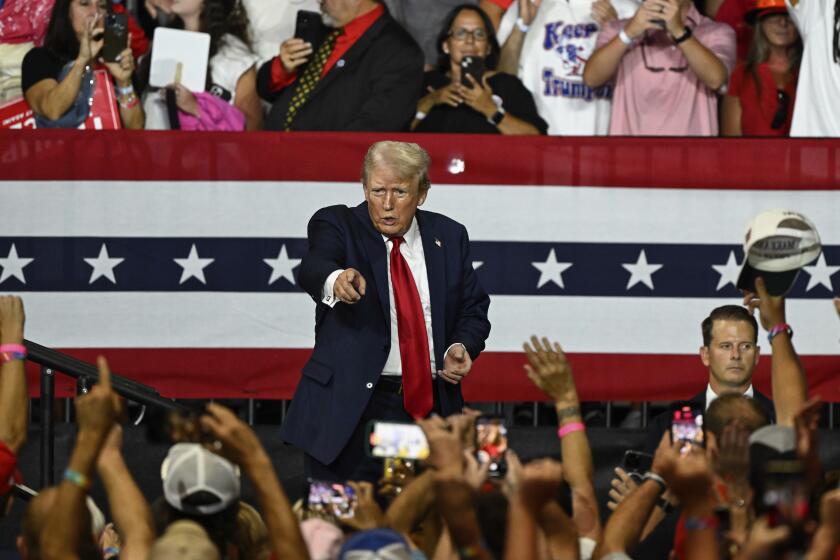Iran says it will make up for the cutoff of U.S. aid to Lebanon
Iran, reacting to the cutoff of U.S. aid to the Lebanese military, told Lebanese officials Tuesday that it would make up the potential $100-million loss.
The promise came one day after disclosures that Rep. Howard L. Berman (D-Valley Village), chairman of the House Foreign Affairs Committee, and Rep. Nita M. Lowey (D-N.Y.), chairwoman of the Appropriations subcommittee on foreign operations, decided to freeze the money because of concerns that the U.S. aid might be buying arms that could be turned against Israel.
Congress has spent about $720 million since 2006 to try to strengthen the weak national army, hoping that it could offset the growing power of the Shiite militia Hezbollah and halt arms smuggling through Lebanon’s eastern border.
Such hopes have been fading in Congress as fears increase that Hezbollah has infiltrated the national force. Those concerns were intensified after a firefight between the Lebanese army and Israeli forces on Lebanon’s southern border Aug. 3 resulted in the deaths of an Israeli officer and two Lebanese soldiers, as well as a Lebanese journalist.
Berman said in a statement this week that the border incident “simply reinforces the critical need for the United States to conduct an in-depth policy review of its relationship with the Lebanese military.” He said that, until the administration can provide assurances that the army “is a responsible actor, I cannot in good conscience allow the United States to continue sending weapons to Lebanon.”
The Obama administration, which on Monday insisted that the program must be continued, on Tuesday showed a new willingness to discuss with the lawmakers how it could provide reassurance that the money would be properly spent.
Philip J. Crowley, the chief State Department spokesman, acknowledged that the border incident has “raised questions” about U.S. aid and “whether any of our assistance was in some way implicated.”
“We will continue to discuss our assistance … with congressional leaders,” he said during a briefing.
He also acknowledged U.S. concern about the growing influence of Iran in Lebanon. “The statements of Iran are expressly the reason why we believe that continuing support to the Lebanese government and the Lebanese military is in our interest,” he said.
Iran’s ambassador to Lebanon, Ghazanfar Abadi, told Lebanese army chief Jean Kahwaji in a meeting in Beirut that Tehran was willing to offset the losses, renewing an offer it has made before, the Iranian Embassy said in a statement.
Mohammed Shatah, an advisor to Lebanese Prime Minister Saad Hariri, said in an interview that the U.S. aid cutoff was “unjustified and regrettable,” but he expressed hope that conversations between Lebanese officials and Congress would persuade lawmakers to resume the assistance.
The freeze “sends a bad signal domestically and a bad signal on U.S. policy,” Shatah said. He declined to comment on Iran’s offer.
Aram Nerguizian, an analyst at the Center for Strategic and International Studies, said the aid cutoff would undermine the U.S. effort to remain a player in an unstable country.
But David Schenker, a former Pentagon advisor on the region at the Washington Institute for Near East Policy, said the administration has been vague on its goals for Lebanon, and Congress is justified in asking tough questions.
“They want to basically understand, what is our policy?” he said.
paul.richter@latimes.com
Times staff writer Richter reported from Washington and special correspondent Sandels from Beirut.
More to Read
Get the L.A. Times Politics newsletter
Deeply reported insights into legislation, politics and policy from Sacramento, Washington and beyond. In your inbox three times per week.
You may occasionally receive promotional content from the Los Angeles Times.











